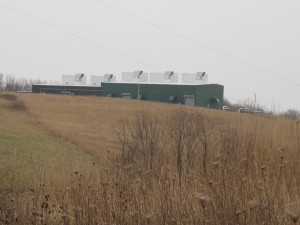DEP Enacts More Stringent Air Quality Rules for Nat Gas Operations
The Department of Environmental Protection released new air quality permit rules for natural gas production sites. DEP says the new emission limits are “75 to 90 percent stricter than current limits for the largest, most common types of engines used at compressor stations.” Compressor stations help transport the gas along pipelines and in the process emit air pollutants.
The announcement comes on the same day a study was released by the Rand Corporation estimating the costs of air emissions from Marcellus Shale gas extraction. The report, “Estimation of regional air-quality damages from Marcellus Shale natural gas extraction in Pennsylvania,” raised concerns about longterm impacts of gas extraction in the heavily drilled counties.
“…the resulting statewide damages were less than those estimated for each of the state’s largest coal-based power plants. On the other hand, in counties where activities are concentrated, NOx emissions from all shale gas activities were 20–40 times higher than allowable for a single minor source, despite the fact that individual new gas industry facilities generally fall below the major source threshold for NOx.”
The Rand Corporation study looked at four sources of regional air pollutants resulting from natural gas production. These include truck traffic, emissions from the well sites during drilling and hydraulic fracturing, the use of diesel engines, fugitive emissions from the wellhead, and emissions associated with the transport of gas via compressor stations. The study did not look at emissions from flares.
Researchers measured four pollutants related to gas drilling activity including volatile organic compounds, nitrous oxide, sulfur dioxide and fine particulate matter. They estimate the air quality damages from 2011 cost between $7.2 million to $32 million.
Because the DEP has not historically aggregated natural gas production sites, compressor stations have been considered a minor single source of air pollutants subject to less stringent controls than a major source. Environmentalists have fought this practice. And the Rand report seems to back up the environmentalists’ concerns, cautioning that current policy may not be adequate to curb emissions.
“It may be hard to limit these emissions through mechanisms such as permitting restrictions, which typically do not apply to mobile and minor stationary sources. Existing regulations may therefore not be well-suited for managing emissions from a substantial number of small-scale emitters. Proposals to aggregate industry sources should be carefully considered in terms of the appropriate unit of aggregation (e.g., by company, by geographic region) and any unintended consequences or perverse incentive they may create.”
[For more on issues surrounding aggregation, see our piece on the battle between DEP and the Clean Air Council.]
The DEP is also proposing to stop exempting wellheads from air quality permits unless they meet certain criteria. Jay Duffy, an attorney with the Clean Air Council, says DEP’s announcement regarding stricter air quality controls is “disingenuous” since in practice, the agency had already been holding gas producers to those standards.

















